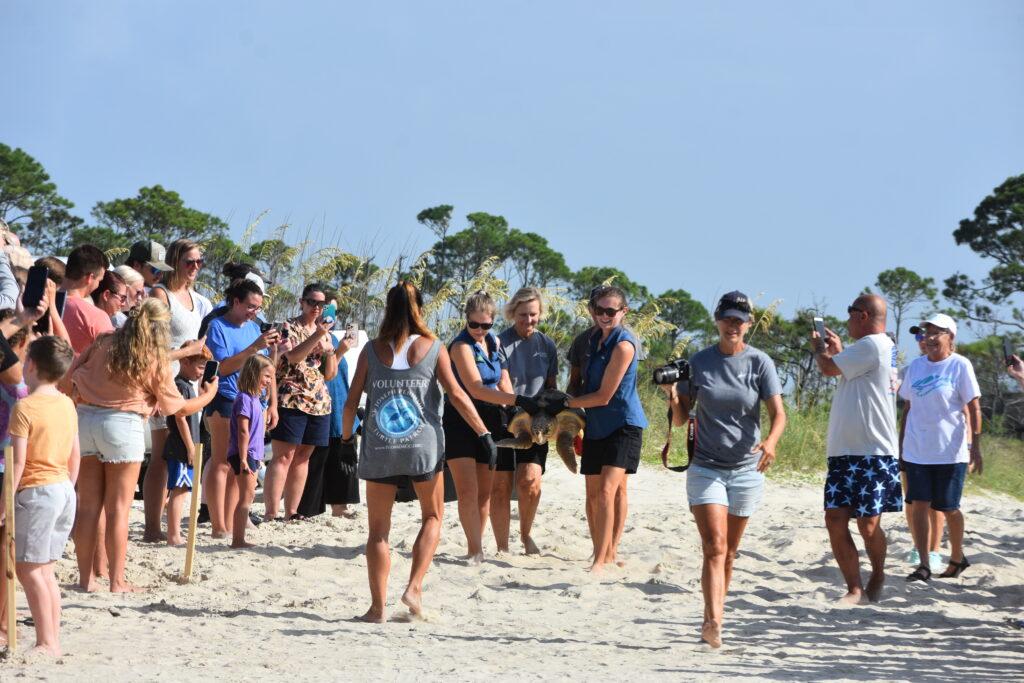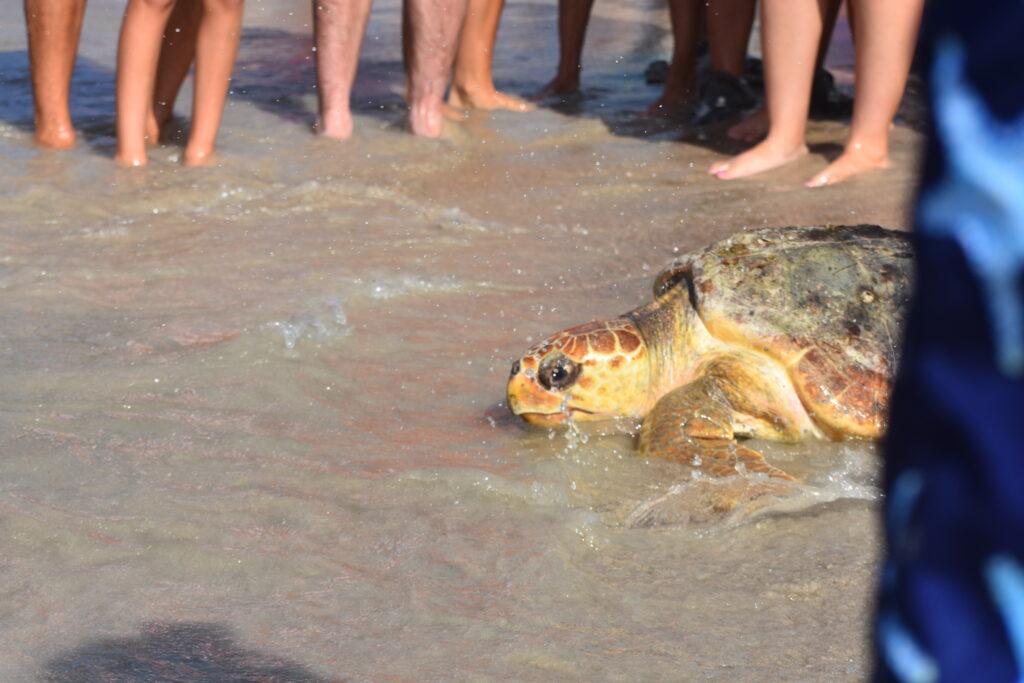Arrow the sea turtle returns to the deep for the second time
As hundreds of onlookers cheered from Salinas Park, Arrow the loggerhead sea turtle wasted no time in making his way back to the water.
It was his second time being released back into the Gulf of Mexico by rehabilitators, and he knew exactly what to do.
Arrow, who spent 10 weeks at the Gulf World Marine Institute after he was accidentally hooked by a recreational fisherman at the Russell-Fields City Pier in Panama City Beach, is what volunteers at GWMI like to call a “repeat offender.”
He had previously been in rehabilitation with GWMI back in 2019. For both instances, Arrow had been hooked at a local pier and required time in rehabilitation to recover from the hook removals.
“During this rescue and health examination, it was found that Arrow had 13 hook/hook fragments in or on their body,” read a press release from GWMI. “Arrow is a great example of why it is so important to contact a rescue organization if you accidentally hook a sea turtle.”
Lauren Albritton, a stranding coordinator for the Gulf World Marine Institute, said accidental hookings are especially common during this time of year.
“There are more fishers on the beaches,” she said,” so we see more turtles with fishing-related injuries.
The National Oceanic and Atmospheric Administration’s Fisheries department recommends that recreational and commercial fishers take the following steps to help protect sea turtles from fishing-related threats:
- Never abandon fishing gear. Hooks, lines, or nets left in the water can entangle and kill sea turtles and marine mammals.
- Use barbless circle hooks and knot-free buoy lines to reduce injuries.
- Inspect gear often to avoid unwanted line breaks.
- Recycle fishing line and stash your trash.
- Change fishing location if sea turtles or marine mammals show interest in your bait or catch.
- Don’t cast your line if a sea turtle or marine mammal is in the area.
- Don’t discard bait or cleaned fish remains into the water, as sea turtles and marine mammals may associate the area with food.
- Never feed or attempt to feed sea turtles or marine mammals – it’s harmful and illegal!
- Release catch quietly away from marine mammals and according to state and federal fishing regulations.
- Immediately report a sick, injured, entangled, stranded, or dead sea turtle to your local stranding network responder.





Meet the Editor
David Adlerstein, The Apalachicola Times’ digital editor, started with the news outlet in January 2002 as a reporter.
Prior to then, David Adlerstein began as a newspaperman with a small Boston weekly, after graduating magna cum laude from Brandeis University in Waltham, Massachusetts. He later edited the weekly Bellville Times, and as business reporter for the daily Marion Star, both not far from his hometown of Columbus, Ohio.
In 1995, he moved to South Florida, and worked as a business reporter and editor of Medical Business newspaper. In Jan. 2002, he began with the Apalachicola Times, first as reporter and later as editor, and in Oct. 2020, also began editing the Port St. Joe Star.